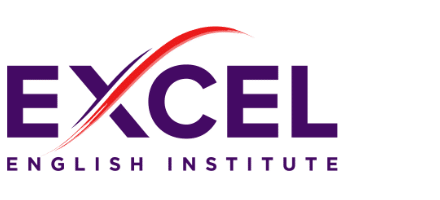The Hidden Benefits of Learning to Write in English
One of my favorite subjects to teach is writing. Yes, writing.
“Agh… writing. I hate writing.”
“I don’t need to write. I need to speak.”
“I’m terrible at writing.”
These are common complaints, and with valid reason. A lot of students don’t really need to learn to write unless, of course, they plan on going to a university or getting a job in which they need to send texts or emails. At which point, they will be thankful for learning how to write.
What a lot of students don’t realize is that there are multiple hidden benefits of writing. You see, from a teacher’s point of view, this is the opportunity to really get to know the student, to assess their abilities, and give individualized feedback for improvement in their language abilities.
Writing is a creative process that requires the student to produce the language from scratch incorporating all of their prior knowledge in making correct sentences (syntax). Obviously you do this when you speak, but often times students favor meaning over accuracy because they want to carry on a meaningful conversation and not have to stop and think about every little article or subject- verb agreement.
Do you know the word metacognition? It means to think on a deeper level about your thought processes.
This is understandable, and often times quite acceptable. However, our goal at Excel English Institute class is to help you achieve that accuracy and provide you with all the tools you need to be confident in your language abilities. Writing is just one of those tools that can really help. Do you know the word metacognition? Basically it means to think on a deeper level about your thought processes. Well, think of writing like metacognition for your grammar and vocabulary, which you will then inform and improve your speaking.
Vocabulary vs Word Choice
Let’s take a look at vocabulary. Writing encourages the learner to develop his or her skills in vocabulary and word choice. Yes, there is a difference between the two. Correct vocabulary means knowing the correct meaning of a word, but word choice refers to accurately using that word in correct context and form of noun, verb, adjective, or adverb.
For example, look at the word “success”. You can say:
Successful athletes train every day.
Very few athletes succeed in making $1,000,000,000 a year, but some do.
Michael Jordan had great success in his time.
The team accomplished their goals successfully.
Creating essays and paragraphs not only improves vocabulary usage and spelling, but also requires students to think about correct grammar structures and tenses. In order to produce interesting writing, students have to incorporate a variety of sentence structures including simple sentences (“I like walking my dog in the park.”), compound sentence (“I like watching TV, but my sister likes reading.”) and complex sentences (“Even though I like watching TV, I rarely watch the news because it is depressing.”).
Present Tense, Passive Voice, Modal Verbs … oh my
It also means the students have to use the correct tense. Is it present simple or past simple? Maybe you need one of the perfect tenses. Is it an action in progress at a particular time in the past, present or future? Who is doing the action? Maybe you need to use the passive voice. Then of course you have all of the modal verbs with all of their nuances which can be so tricky to understand for English language learners.
I could go on and on about all of the benefits of writing. Now, this isn’t to say writing is more important than speaking by any means. I just love teaching it because it allows me insight into student’s abilities so that I can help them improve in these areas. Often, many of the errors that are made on paper reflect similar errors in their speaking. Seeing that on paper and pointing it out to the student can help improve his or her speaking. It is a joy to see a light bulb go off in my student’s heads when I hand back their writings and they say, “Yes, teacher! I always make this mistake. Thank you!”
Writing is like meditation on producing language.
So, if you are not really interested in knowing how to write, or you don’t have a specific purpose to learn this skill such as getting into a university or performing daily functions at your profession, then try to think of writing like a little meditation that gives you the opportunity to reflect on producing the language.
I hope this makes sense, and hopefully encourages you.
Remember, writing is not easy. It’s one of the hardest language skills you will learn. However, you will be rewarded for all your efforts with a deeper understanding and ability with the English language.














